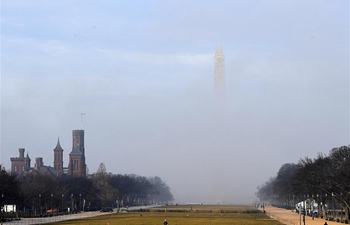LONDON, Jan. 9 (Xinhua) -- The World Bank (WB) warned on Tuesday that a failure to reach a "smooth" deal for Britain to leave the European Union (EU) could pose a serious risk to Europe's economic recovery in 2018.
"If there is some surprise along the Brexit road that might derail a European recovery, and that recovery has been exceptionally strong," Franziska Lieselotte Ohnsorge, told Xinhua on Tuesday afternoon.
Ohnsorge is one of the lead authors of a report "Global Economic Prospects" published Tuesday evening by the WB which noted that within Europe "uncertainty remains elevated and could intensify again, weighing on confidence and growth".
The report noted that Brexit negotiations could harm investment decisions throughout Europe, and Brexit had certainly already had an effect on the British economy, Ohnsorge said.
"Brexit is difficult. We expect growth in Britain to slow from 1.6 percent to 1.4 percent," she said.
There is no clear path for Brexit, and no certainty as the EU and Britain enter the second and more complex phase of the Brexit negotiations of what a Brexit will mean for trade between the two parties.
The prospect of a Brexit in which Britain quits the 28-nation bloc with no agreement on tariffs or on provision of financial services could hit both Britain and the EU, which depends on London's deep and liquid capital markets for much of its debt and investment financing.
A no-deal Brexit, or one with tough tariff terms, cannot yet be modelled, said Ohnsorge, but it would be disruptive to trade and to growth.
"That is one of the risks -- not just to the British economy but to the European economy," she said.
Ohnsorge's report noted that growth in Europe and the wider Europe/Central Asia region had been 3.8 percent in 2017.
At the same time as growth in Britain had been revised down by 2 basis points, growth in the wider European region had been revised up by 1.3 percentage points.
Although growth across the region was forecast to slow to 2.9 percent over 2018, it was expected to maintain a level of about 3 percent through to 2020.
The WB was working on the assumption that Brexit would be smooth and that trading conditions would not alter much.
"Our assumption is that the whole process proceeds smoothly, and that there are no surprises," said Ohnsorge.















